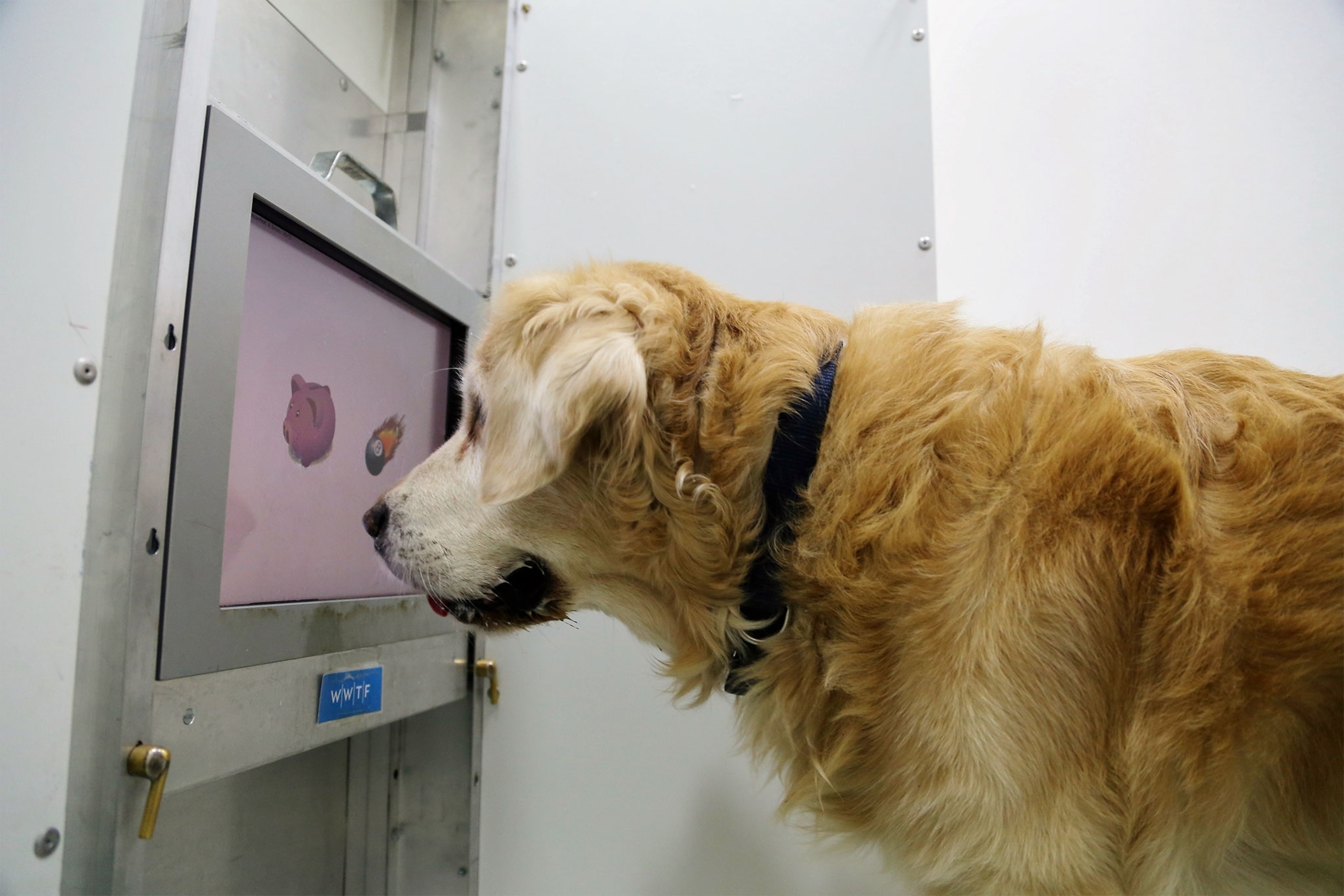
Can Old Dogs Learn New Tricks? New "Brain Games" May Help Them Stay Young
As people become increasingly attached to their screens, scientists are researching whether dogs could benefit from the technology.
As we age, cognitive functions like memory begin to decline. To combat this, some seniors play "brain games" to keep their minds sharp.
Researchers in Vienna think dogs may be able to get the same benefit. Except instead of sitting down to a crossword puzzle or working on a sudoku, cognitive scientists have trained dogs to respond to a touchscreen.
They're calling it "dog sudoku" (though it's not conceptually similar to the numbers game), and they hope it may one day be used in the home to increase a dog's quality of life by combatting boredom and restlessness.
The Vienna-based research center, aptly named the Clever Dog Lab, tested 100 pet border collies and 115 dogs of different breeds on the touchscreen system.
In the first phase of their training, the dogs were familiarized with the touchscreen and food dispensing system. They learned to approach the screen and not paw at the food-filled pipe beneath it.
In the second phase of their training, dogs learned to associate an image on the screen with a food reward. When a colorful circle appeared on the screen, owners would apply a glob of dog food paste to the spot.
In the third phase, the paste was removed, and dogs learned to press their nose to the circle instead of licking it.
Video of the experiment shows dogs in this phase of their training.
In the top left corner, a yellow dot appears. When the dog touches the dot with its nose, a treat is dispensed from a pipe jutting out below the screen. Panels are set up on either side of the screen to prevent the dog from being distracted. The dot then moves to a different position on the screen, and when the dog successfully touches it, a treat is dispensed again.
In the final stage, dogs are presented two stimuli. When the correct one is chosen, they receive a reward. When the wrong one is chosen, the screen appears blank before the same exercise repeats.
"The fact that the older dogs were able to learn such abstract and sometimes difficult tasks was very encouraging," said Lisa Wallis, a lead author of a study on the research published in the ACM Digital Library.
Measuring Results
To assess whether the game was improving the dogs' quality of life, researchers relied on owner feedback. No psychological or neurological measurements were taken, and Wallis emphasizes their research on brain game for dogs is still in its foundational stages.
The study notes that of the more than 100 dogs tested, only six dropped out of the volunteer program.
Some owners travelled for over an hour by car to reach the labs, and some even came twice a week. After several visits, the owners report being amazed to see how well their dogs were progressing, and at the enthusiasm of their dogs when they began to anticipate their weekly training sessions.
While the researchers hope the game might strengthen the bond between dogs and their owners, a computer was used to simulate play because, unlike people, the mechanism by which it gives a reward is more consistent. A human, for example, may at times not be in the mood to play with a pet or might offer rewards of varying degrees.
Wallis sees potential for everyone to use the data collected by the lab, from scientists to kennels, to assess cognitive function in individual dogs.
Down the line, the study notes that a touchscreen game in the home could be used to improve a dog's wellbeing.
Older dogs are also prone to Canine Cognitive Dysfunction, a canine disease that has been compared to Alzheimer's. With an earlier way to detect the cognitive decline, Wallis says vets might have time to treat dogs and prevent further decline.
While many of the published results were qualitative, Wallis says the lab plans to measure whether the touchscreen can decrease a dog's cortisol (the stress hormone) and increase a dog's dopamine (the chemical responsible for pleasure).
Scientists can't yet conclusively say if the touchscreen brain games lead to neurological improvements, but owner-reported anecdotes are showing promise.